I am writing a C# assembly that is called from an x64 process (SS Reporting Services) and needs to use an x86 3rd party COM assembly.
When I compile my assembly as x64, I get a "Class not registered" COM exception as soon as the first call to the COM assembly is made.
Following the advice here (sorry if my terminology is incorrect) I created a new COM+ application and added components found in the COM assembly I am referencing. When I run my assembly as x64 it does make some successful calls to the COM assembly until I get this error:
Unable to cast COM object of type 'TRIMSDK.RecordTypesClass' to interface type 'TRIMSDK.IBaseObjects'. This operation failed because the QueryInterface call on the COM component for the interface with IID '{8A354545-6BCB-11D3-B273-00A0C9FC3DC0}' failed due to the following error: No such interface supported (Exception from HRESULT: 0x80004002 (E_NOINTERFACE)).
'TRIMSDK.RecordTypesClass' does implement 'TRIMSDK.IBaseObjects' according to the class definition.
If I search the registry for the interface GUID from the error message or for 'IBaseObjects', no matches are found. Since creating the COM+ application I get the same error in x86 mode (which I guess makes sense), though it worked fine in x86 before that.
So, I assume the 'TRIMSDK.IBaseObjects' interface I'm trying to use isn't being registered as a COM+ thingy and I don't know why or how to fix it.
Any ideas? Thanks in advance.
Update: I think I am getting the E_NOINTERFACE exception for TRIMSDK.IBaseObjects because the TypeLibType attribute on the interface is set to 'FNonExtensible' only, whereas other interfaces I use successfully in the assembly also have 'FDispatchable'. Is it possible to get around this error (either altering the type library or manually registering the 'IBaseObjects' interface somehow)?

